Five of the best from Blur
Five of the best from Blur
- Parklife (1994) - Often regarded as their magnum opus, it defined the Britpop era and achieved massive commercial success.
- The Great Escape (1995) - Continued their commercial success and cemented their status as Britpop icons.
- Blur (1997) - Marked a significant shift in their sound and brought them international success, especially with the hit "Song 2".
- Modern Life Is Rubbish (1993) - While not as commercially successful as later albums, it was critically acclaimed and set the stage for their Britpop sound.
- 13 (1999) - Showed the band's experimental side and was both a critical and commercial success.
1. Parklife (1994)
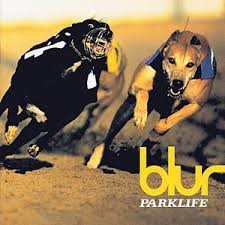
Blur's 1994 album Parklife is a defining moment in Britpop and 90s British music. The record captures the essence of mid-90s British culture, blending witty social commentary with catchy pop hooks. Damon Albarn's observational lyrics paint vivid pictures of everyday British life, from greyhound racing to bank holidays. The album's eclectic sound, incorporating pop, rock, and electronic music, showcases Blur's versatility and musical ability.
Parklife's success propelled Blur to the forefront of the Britpop movement, rivaling Oasis in the era's famous "Battle of Britpop." The album's title track, featuring narration by actor Phil Daniels, became an anthem of its time. Other hit singles like "Girls & Boys" and "To the End" further cemented the album's place in British music history. Parklife's influence extends beyond its release, inspiring countless artists and remaining a touchstone of 90s British culture.
2. The Great Escape (1995)
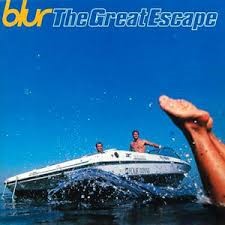
The Great Escape marked the peak of their Britpop era, building on the success of Parklife. This concept album offers a satirical look at British society, with Damon Albarn's lyrics critiquing suburban life, consumerism, and class struggles. The Great Escape showcases Blur's musical evolution, featuring more complex arrangements and a broader range of instruments. The album's lead single, "Country House," famously battled Oasis' "Roll With It" for the UK number one spot, intensifying the Britpop rivalry.
Other notable tracks like "The Universal" and "Stereotypes" became fan favorites. While some critics viewed it as overly ambitious, The Great Escape received widespread acclaim and commercial success, topping the UK charts. The album's themes and sound continue to influence British indie rock, cementing Blur's status as Britpop icons and setting the stage for their later experimental work.
3. Blur (1997)
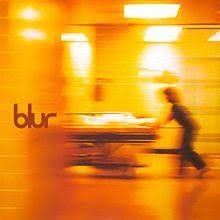
Blur's self-titled 1997 album marked a significant shift in the band's sound and style, moving away from their Britpop roots towards a grittier, more experimental approach. Influenced by American indie rock, particularly Pavement, the album showcases a rawer, guitar-driven sound. This change in direction was largely driven by guitarist Graham Coxon's growing influence on the band's music. The album's lead single, "Beetlebum," topped the UK charts, while "Song 2" became an international hit and remains one of Blur's most recognizable tracks.
Lyrically, Damon Albarn explores themes of alienation, relationships, and identity crisis. The album received critical acclaim for its bold reinvention of the band's sound and helped Blur break into the American market. Blur's self-titled album stands as a pivotal moment in the band's career, bridging their Britpop past with their more diverse and experimental future work.
4. Modern Life Is Rubbish (1993)
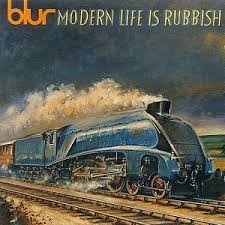
Modern Life Is Rubbish, Blur's second studio album released in 1993, marked a pivotal shift in the band's sound and image. Moving away from the Madchester-influenced style of their debut, this album laid the groundwork for the Britpop movement. Frontman Damon Albarn's lyrics reflect a distinctly British perspective, critiquing contemporary culture and suburban life. The album showcases a more guitar-driven sound, with Graham Coxon's playing taking center stage. Influences from classic British rock bands like The Kinks and Small Faces are evident throughout.
While not an immediate commercial success, Modern Life Is Rubbish gained critical acclaim and cult status. Singles like "For Tomorrow" and "Chemical World" exemplify the album's blend of catchy melodies and social commentary. This record established Blur's signature sound and thematic focus, setting the stage for their breakthrough with Parklife the following year. Modern Life Is Rubbish remains a crucial album in the development of 90s British alternative rock.
5. 13 (1999)
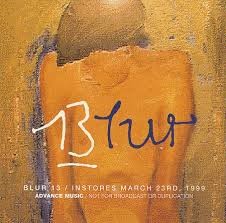
13, released in 1999, marked a significant departure from their Britpop roots, embracing a more experimental and emotionally raw sound. Produced by William Orbit, known for his work with Madonna, the album features electronic elements, distorted guitars, and unconventional song structures. Lyrically, 13 delves into personal themes, largely inspired by Damon Albarn's breakup with longtime girlfriend Justine Frischmann of Elastica. The lead single "Tender" became an instant classic, blending gospel influences with introspective lyrics.
Other tracks like "Coffee & TV" and "No Distance Left to Run" showcase the band's evolving songwriting and willingness to explore new sonic territories. 13 received critical acclaim for its boldness and emotional depth, topping the UK charts and earning a Mercury Prize nomination. This album represents a crucial turning point in Blur's discography, paving the way for their future experimental works and solo projects, while solidifying their status as one of Britain's most innovative rock bands.
Recent Posts
Queen studio albums: A Review
Phil Collins Albums Ranked & Reviewed – Complete Guide to Every Studio Album
The best of Massive Attack
Let’s Make Magic
Book Your Event DJ Now




